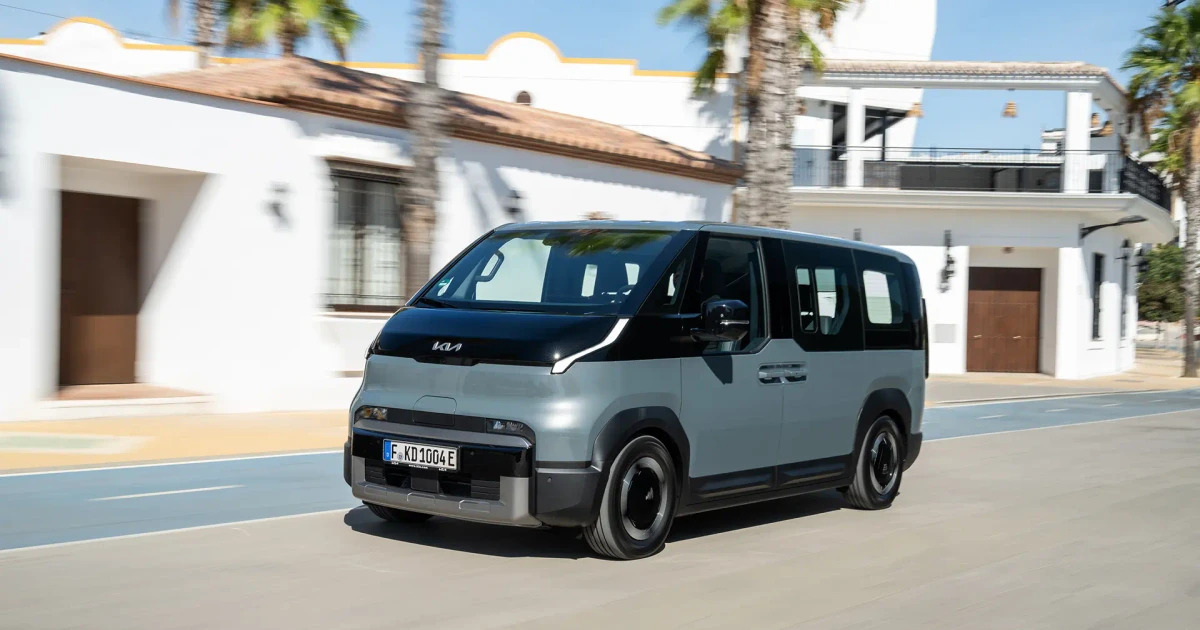Kia PV5 made history: the first electric van to win the 2026 Van of the Year title
Kia’s fully electric van PV5 has been awarded the title of International Van of the Year 2026. The “2026 International Van of the Year” (IVOTY) award marks the first-ever historic victory both for Kia and for any Korean automaker. The jury consisted of leading commercial vehicle journalists from 26 countries. The award was presented on 19 November at the IVOTY awards ceremony at SOLUTRANS 2025 in Lyon, France.
“The Kia PV5 impressed the jury with its comprehensive capabilities, efficient electric platform, and clear focus on user needs,” said Jarlath Sweeney, Chairman of the International Van of the Year jury. “The unanimous decision shows that this model sets a new benchmark for how zero-emission vans can deliver practical innovation.”
The PV5 competed for the title alongside six other vans launched in 2025, two of which were also electric. The significant share of electric vans among the finalists highlights the growing importance of electrification as the industry accelerates towards a more sustainable future.
Less than a month after its market launch, the Kia PV5 also earned a GUINNESS WORLD RECORDS™ title for “the greatest distance travelled by a battery-powered electric light commercial vehicle with its maximum permissible payload on a single charge,” achieving 693.38 kilometres.
Marc Hedrich, President and CEO of Kia Europe, said: “Winning the prestigious International Van of the Year award is a true honour and a major recognition from the most respected light commercial vehicle journalists. This acknowledgement is even more significant given that the first vehicles are only just arriving in Europe. While we are newcomers to the light commercial vehicle market, this achievement confirms Kia’s readiness to deliver engineering solutions, design, and practicality that strengthen our position as a leading provider of mobility solutions. We express our sincere gratitude to the IVOTY jury and to all Kia employees for their dedication.”
Sangdae Kim, Vice President of Kia Corporation and Head of the PBV Division, added: “In 2022, Kia established the PBV division with the ambition to transform the light commercial vehicle market through innovation – a core value for Kia. The Kia PV5 brings this vision to life, and the International Van of the Year award for our first PBV model confirms that we are moving in the right direction. The PV5 was developed by actively listening to our customers, and every detail has been carefully crafted to meet real-world business needs. This award marks an important milestone, but our journey to deliver meaningful value to customers continues as we expand the PBV lineup.”
Commenting on the recognition, Kia Corporation President and CEO Ho Sung Song said: “The PV5 represents a breakthrough achievement for Kia, as it brings our vision for electrified purpose-built mobility into reality. As our first fully electric van and the debut model in the Platform Beyond Vehicle product series, the PV5 demonstrates how practical design, innovative technology, and a focus on customer needs come together in a vehicle built for real-world demands. This achievement reflects the passion and expertise of our global teams and underscores Kia’s commitment to shaping a smarter and more responsible mobility future.”
An electric van that gets the job done
The PV5 is Kia’s first eLCV (electric light commercial vehicle) and the debut model of the Platform Beyond Vehicle (PBV) product lineup. Based on Kia’s Electric-Global Modular Platform for Service (E-GMP.S), the PV5 offers up to 416 kilometres (Cargo Long) and 412 kilometres (Passenger) of fully electric driving range (AER, WLTP), DC fast charging from 10% to 80% in under 30 minutes, and a payload capacity of up to 790 kg.
In Europe, the Kia PV5 is currently available as the Cargo Long and Passenger versions. Starting in 2026, new variants will join the lineup, including the Chassis Cab, short wheelbase Cargo (L1H1), and High Roof (L2H2). Larger vans, the PV7 and PV9, are currently under development.




